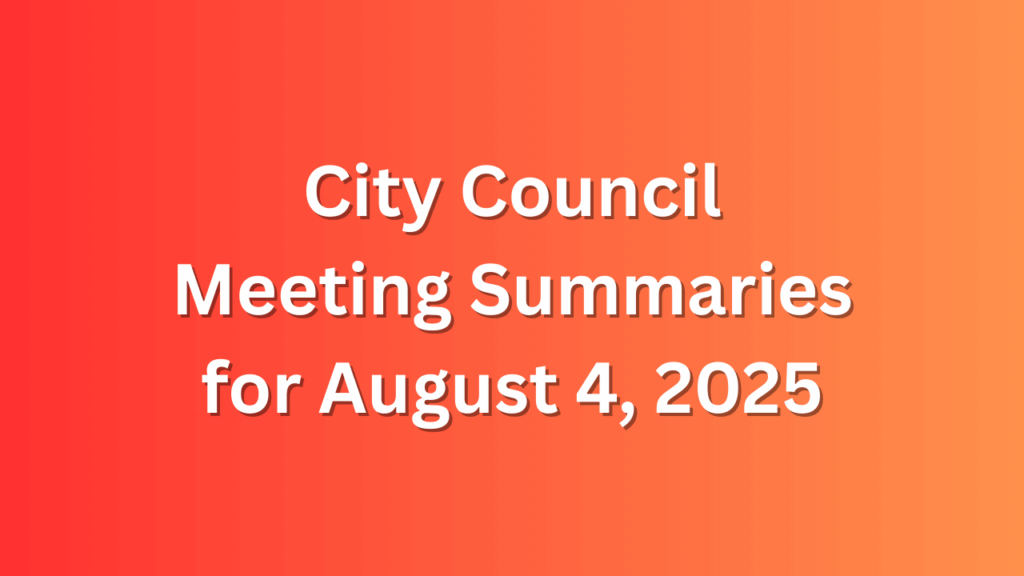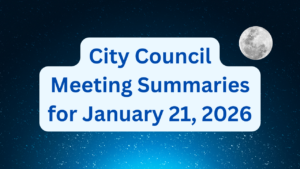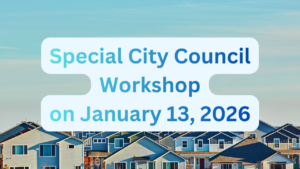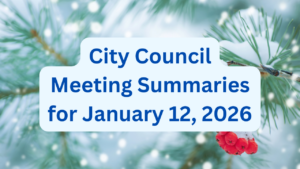
Disclaimer: The views I express here are my own and should NOT be construed as speaking for the City of Bangor or the City Council of Bangor.
Finance Committee
You can read the agenda for this meeting here.
Bicycle Racks
The first item was a proposal for the purchase of bicycle racks for various locations including downtown, the waterfront, five parks, and all schools. This initiative is partially funded by a $75,000 grant from the state of Maine’s Community Resilience Partnership Program. The committee reviewed quotes and staff recommended awarding a contract to R.J. Thomas for a total of $19,146.50. This price includes a 5-year warranty and delivery within 30 days. Public Works will handle the installation, which is an additional cost. Of the total project cost, $25,000 will be covered by the community action grant, with the remainder paid from the downtown TIF set aside for this purpose. The committee moved to approve the staff’s recommendation.
Energy Audit of City-Owned Buildings
Next, the committee discussed an energy audit for six city-owned buildings, also funded in part by the state’s Community Resilience Partnership Program grant. The level two energy audit will assess energy use, air leakage, and decarbonization at the Bangor Innovation Center, two buildings at the golf course, the central fire station, and two middle schools. Though Puro Veritas was the low bidder at $29,200 from a pool of twelve firms, questions arose regarding a significantly lower, non-responsive bid from another company. Consequently, the committee decided to postpone the decision to gather more information and will revisit the matter at the next finance committee meeting. A question was also raised about the allocation of the remaining $25,000 from the $75,000 grant, which will be addressed at the future meeting.
Used Detective Vehicle Purchase
The committee was updated on the purchase of a used 2025 Hyundai Sonata for the police department at a cost of $26,000. The vehicle, which has 1,568 miles, replaces one that was totaled after hitting a deer. The purchase was made under the city’s procurement policy, which allows for the direct purchase of used vehicles to achieve significant savings. The department had budgeted $88,000 for detective vehicles, and buying this used car saved approximately $2,000 compared to a new one. The insurance payment of about $18,000 for the totaled vehicle was returned to the police department’s vehicle purchasing fund. No action was required from the committee as the vehicle had already been purchased.
Abatement Application
Committee returned from the executive session and accepted staff recommendation.
Business & Economic Development Committee
You can read the meeting agenda here.
Zoning Change Request
The committee reviewed a request prompted by Versant’s plan to develop a training center on Union Street, which is located in a rural residential agriculture district. Staff proposed a zoning change to allow for this type of use, suggesting it be grouped with private schools and recreational facilities. This change would be limited to major arterial roads, which include Broadway, Hammond, Hoken Road, Main Street, Oddland Road, State Street, Still Water, and Union Street.
During the discussion, committee members raised concerns about potential impacts, such as increased traffic. I suggested that the new use be classified as a “conditional use” rather than a “permitted use” to give the planning board more oversight. The committee reached a consensus to wait for feedback from the planning board, which was scheduled to review the proposal informally the next day, before finalizing any language for the change.
Airport Update
The airport director provided a report covering passenger statistics, ongoing projects, and potential future funding mechanisms.
Passenger Traffic and Fuel Sales Passenger traffic saw a slight dip in June, which was attributed to a combination of runway construction and a general softening in the airline industry. Despite this, an increase in the number of flights and the size of aircraft left the director unconcerned about the long-term trend.
Fuel sales for the recently concluded fiscal year showed a decrease in military traffic, but this was offset by increased sales in other segments. While the total volume of fuel sold was below budget, the net revenue from fuel sales was higher than budgeted due to better profit margins from non-military sales.
Capital Projects Several major capital improvement projects are in various stages of planning:
- Consolidated Car Rental Facility: The airport plans to implement a customer facility charge to fund this project. An expert in fee structures will be hired to determine an appropriate charge.
- Taxiway Alpha Reconstruction: Early estimates for this project are between $15 and $25 million. The project’s logistics will be less disruptive than the runway construction, as the airport can remain operational.
- TSA Checkpoint Expansion: To address bottlenecks caused by increased passenger traffic, the airport is planning to expand and relocate the TSA checkpoint. An initial design is being refined. This project, estimated to cost between $15 and $20 million, will likely be funded by Passenger Facility Charge (PFC) fees.
- Fuel Farm Relocation: The current fuel farm, originally from the military, is outdated and poses safety concerns due to its pipeline crossing a public road multiple times. The plan is to relocate it within the airport’s perimeter fence. The estimated cost for this project is around $15 million, and it will likely be funded through bonds or cash, as it is not eligible for federal grants. The airport generates $8 to $10 million in revenue annually from fuel sales alone.
Passenger Facility Charge (PFC) Legislation The director asked for the committee’s support for federal legislation that would increase the cap on the Passenger Facility Charge (PFC). The current cap of $4.50 has been in place for over 20 years. The proposed legislation would incrementally raise the cap and tie it to a price index. The committee expressed support, noting that they had advocated for this in the past and that it would provide a stable source of funding for airport projects. The airport plans to coordinate with the Portland airport to submit a joint letter of support.
Government Operations Committee
You can read the meeting agenda here.
Grant Applications
The committee ratified staff actions to apply for three separate grants that had short application windows. The first was a CARES grant for $75,000 to fund staff time for a “one-stop shop” model, a service for which the city had previously sought a different grant from Gilead that did not cover personnel.
Two other applications were for Homeland Security grants administered through MEMA. One grant for $103,000 would support training and equipment for the fire and police departments. The second, for $29,250, would purchase hardware for security keys for computer logins. The city Grants Manager was instrumental in identifying and applying for these opportunities. While supporting the applications, some councilors expressed a desire for earlier notification, even if informal, about such grant applications in the future.
Community Connector Fare Study
Foursquare ITP presented a fare study for the Community Connector bus system. The study’s goals are to increase fare revenue, decrease the burden of fare collection, and consider the impact on riders. The study analyzed two scenarios:
- Scenario One: Maintains current pricing but phases out paper tickets and transfers in favor of a mobile payment app with fare capping.
- Scenario Two: Increases the base fare from $1.50 to $2.00, raises the monthly pass from $45 to $60, and implements both a mobile app and a smart card system, also with fare capping.
The study recommends a phased implementation of Scenario Two, as it is projected to return the fare revenue’s share of operating costs to pre-pandemic levels of 20%. Currently, fares cover about 12% of operating costs. Council members expressed concern that a fare increase could lead to a drop in ridership among those least able to afford it. The next phase of the study will include public engagement before any final recommendations are brought to the council for a vote.
Community Connector Operations Update
The committee also received a general update on the bus system. The implementation of new bus stop technology is ongoing, and the next phase involves making infrastructure improvements at the over 300 fixed stops, prioritizing those that are most heavily used. Staffing remains a challenge; while the service is close to fully staffed with over 40 drivers on paper, not all are available for full hours, leading to overtime. The city is actively recruiting new drivers with the goal of bringing back Saturday service. Integrating the bus schedule with Google & Apple Maps is also being actively worked on.
Public Bathroom Update
The Parks and Recreation Director, Tracy Willette, provided an update on the public restrooms, which have been in place for a full year. While the restrooms have helped alleviate issues at the public library, there have been challenges with misuse, particularly at the Broad Street and Harlow Street locations. To mitigate these problems, the city will increase cleaning frequency, add monitoring by Public Works crews, and install new signage to identify prohibited behaviors. The annual maintenance budget for the restrooms is approximately $100,000.
City Hall Relocation
The Assistant City Manager announced that this was the last night of committee meetings at the temporary location. The next meetings will be held at the newly renovated City Hall at 73 Harlow Street, starting August 11th, with a grand reopening ceremony at 5:15 p.m.





